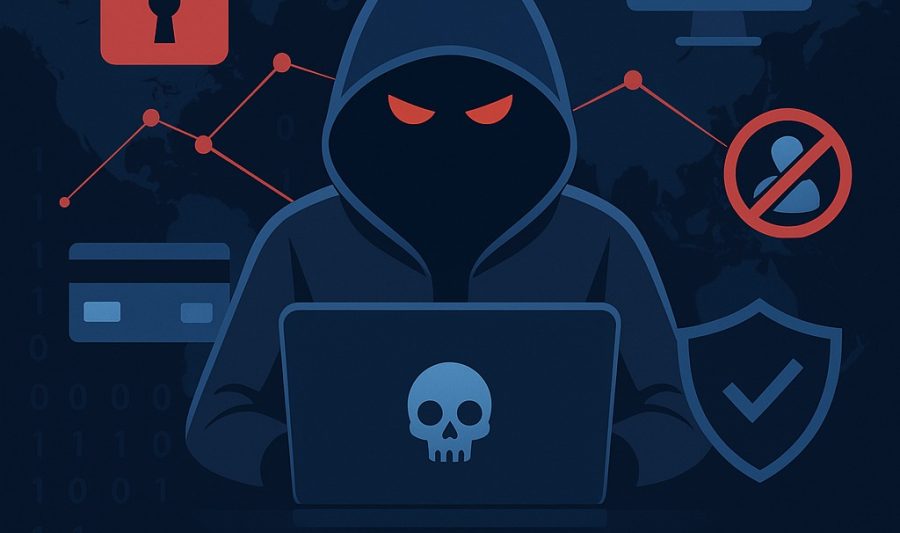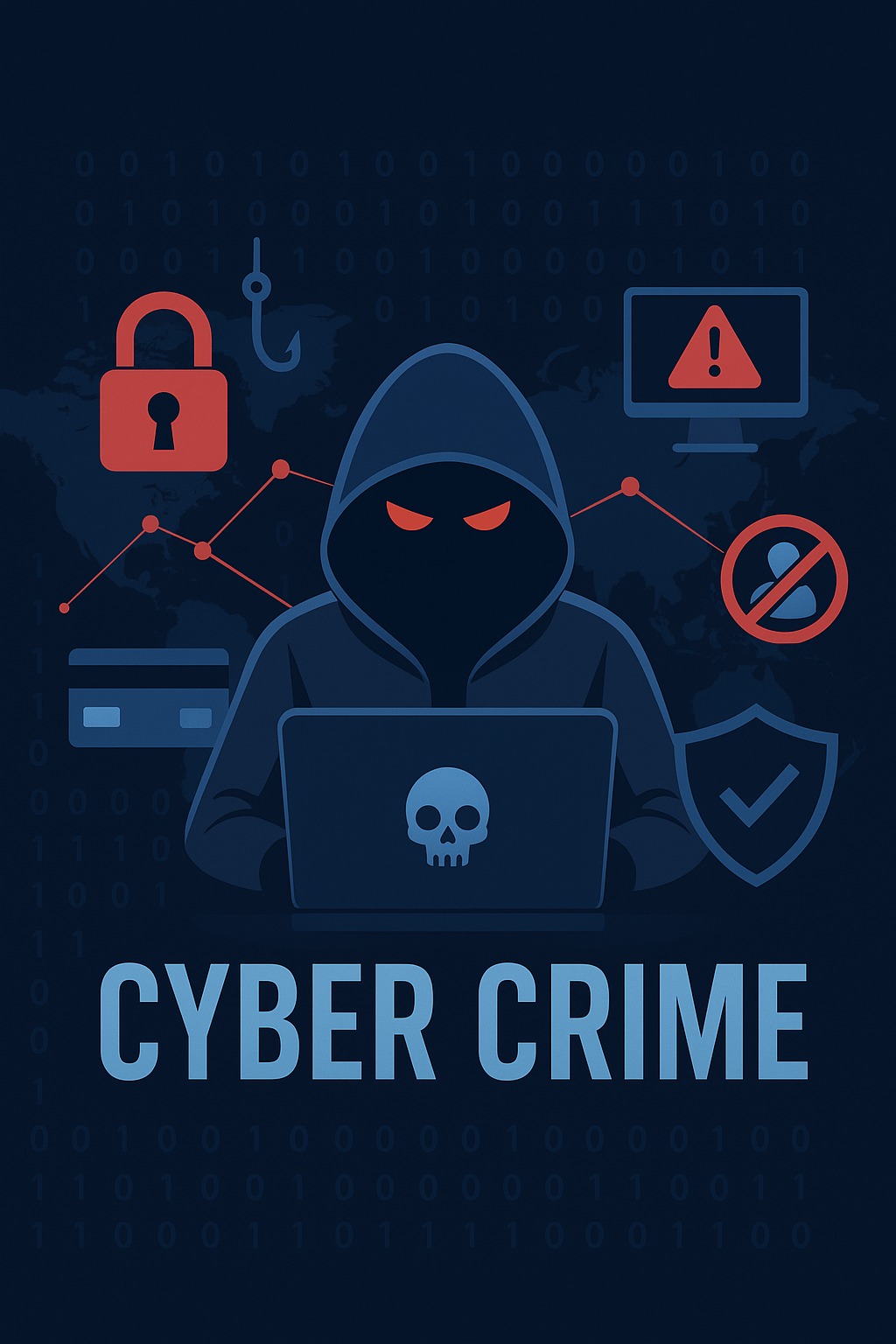
Digital Shadows: How Cyber Crime Threatens Your Online Safety
In today’s hyper-connected world, our personal and professional lives revolve around the internet. From online banking and shopping to social media and cloud storage, our digital presence is vast and deeply intertwined with our daily routines. However, this dependence on technology has opened the door to a darker realm — the world of cyber crime. Beneath the convenience of connectivity lies a growing threat that looms in the form of digital shadows, where hackers, scammers, and data thieves operate silently.
Understanding Cyber Crime
Cyber crime refers to criminal activities that involve computers, networks, or digital devices. Unlike traditional crimes, these offenses occur in the virtual world but can have devastating real-world consequences. Common forms of cyber crime include:
Phishing Attacks: Deceptive emails or messages designed to steal personal or financial information.
Malware and Ransomware: Malicious software that infiltrates devices to steal or lock data until a ransom is paid.
Identity Theft: Criminals use stolen personal data to impersonate victims for financial gain.
Data Breaches: Unauthorized access to databases containing sensitive user information.
Cyber Bullying and Harassment: Use of digital platforms to threaten, shame, or intimidate others.
These crimes are not limited to individuals; corporations, government agencies, and even entire infrastructures are frequent targets.
The Expanding Threat Landscape
As technology evolves, so do the tactics of cybercriminals. The emergence of artificial intelligence, deepfakes, and cryptocurrency has created new opportunities for exploitation. Hackers are no longer lone individuals in dark rooms; they are often part of organized global networks operating like sophisticated businesses.
AI-Driven Attacks: Hackers use AI to automate phishing campaigns and identify system vulnerabilities faster.
IoT Exploitation: Smart home devices and wearables can serve as entry points for cyber attacks.
Cryptocurrency Scams: Digital currencies are increasingly used for money laundering and anonymous transactions.
The result is a rapidly expanding web of digital threats that can compromise your privacy, finances, and reputation.
The Human Factor: The Weakest Link
Technology may be complex, but most successful cyber crimes rely on human error. A single careless click on a suspicious link or downloading an unverified attachment can open the gates to a major breach.
Cyber criminals exploit human psychology — curiosity, fear, urgency, and trust — to deceive even the most cautious users. This is why awareness and education are critical in protecting yourself online.
How Cyber Crime Threatens Your Online Safety
Financial Losses: Victims of online scams, identity theft, and ransomware can lose significant sums of money.
Privacy Invasion: Hackers can gain access to private messages, photos, and sensitive documents.
Reputational Damage: Leaked or manipulated information can tarnish both personal and professional reputations.
Emotional Stress: Victims of cyber bullying, blackmail, or fraud often suffer from anxiety, fear, and loss of trust in technology.
Business Disruption: For companies, cyber attacks can lead to operational shutdowns, customer distrust, and legal penalties.
Protecting Yourself from the Digital Shadows
While cyber threats are inevitable, you can take proactive measures to minimize your exposure:
Use Strong and Unique Passwords: Combine letters, numbers, and symbols. Use a password manager to avoid repetition.
Enable Two-Factor Authentication (2FA): Adds an extra layer of security to your accounts.
Stay Updated: Regularly update your operating systems, browsers, and security software.
Avoid Suspicious Links and Attachments: Always verify the sender before clicking or downloading.
Secure Your Wi-Fi: Use encrypted connections and avoid using public Wi-Fi for sensitive transactions.
Backup Regularly: Store important data on external drives or secure cloud platforms.
Stay Informed: Awareness of the latest scams and cyber threats is your strongest defense.
Legal Remedies and Reporting
Most countries have enacted strict laws to combat cyber crime. In India, for instance, the Information Technology Act, 2000 (IT Act) provides legal recourse for victims of online offenses. Victims can report incidents to cybercrime.gov.in or local cyber police units. Awareness of legal rights and prompt reporting can play a crucial role in bringing offenders to justice.
The Road Ahead
The fight against cyber crime is a continuous battle between innovation and exploitation. As digitalization deepens across industries and lifestyles, cybersecurity must evolve from being an option to a necessity.
Building a culture of cybersecurity awareness — at home, in schools, and in workplaces — is essential to outsmart those who lurk in the digital shadows.
Conclusion
The internet has revolutionized how we live, work, and connect, but it also harbors unseen dangers. Every click, share, and login leaves a trace in the digital realm. By understanding how cyber crime operates and taking responsible actions, we can safeguard our virtual identities and ensure a safer, more secure digital future.






